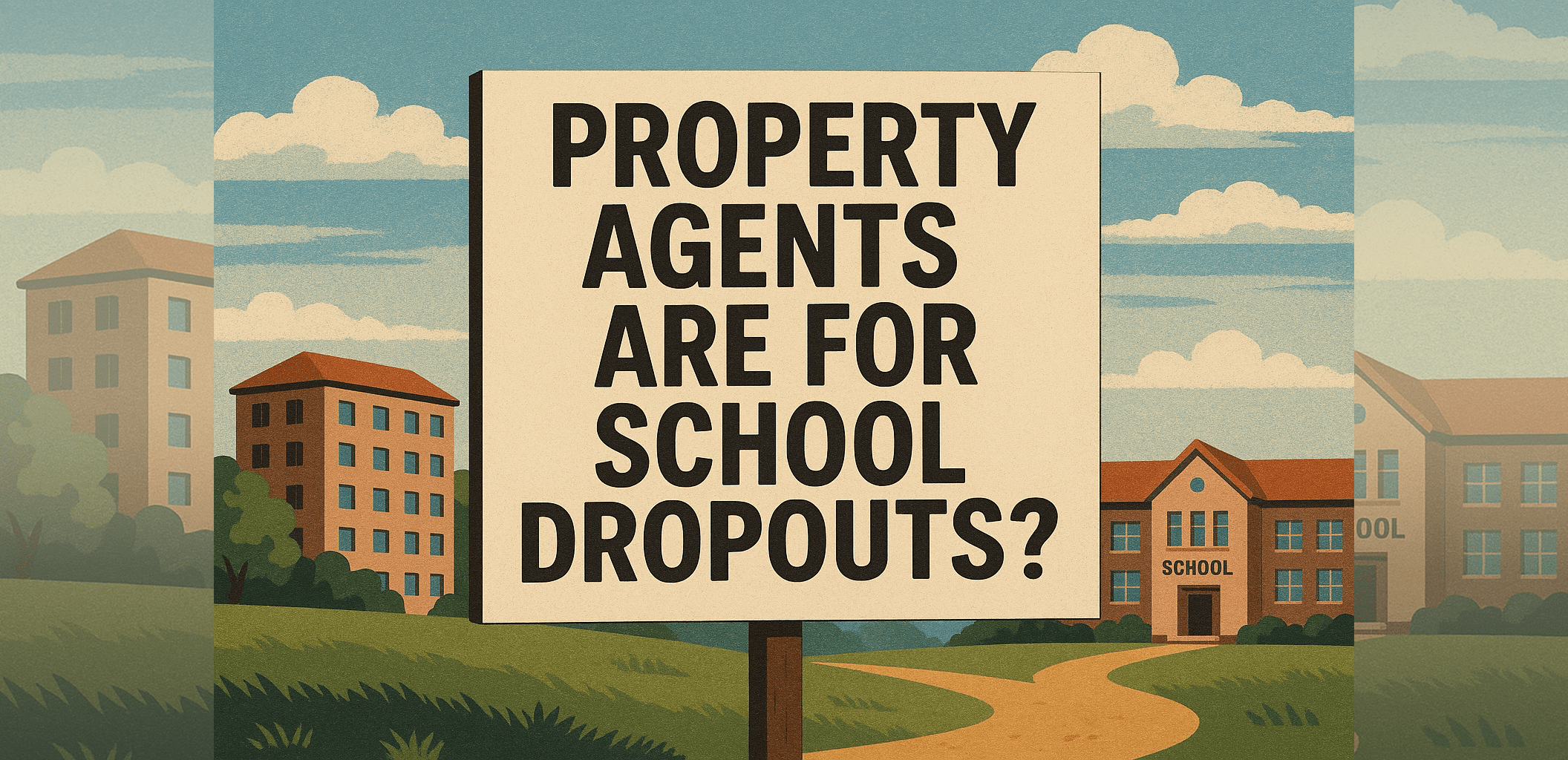Property Agents Are for School Dropouts?

Let’s get one thing straight: that claim is misguided. It confuses the lowest bar to entry with the highest bar to success. Yes, you can enter residential subsales with SPM. But to last, lead, and excel in Malaysia’s property industry demands intelligence, discipline, and ethics that would humble many degree holders.
People often see the floor of the profession—young negotiators fumbling their first listings—rather than its ceiling: tenant reps structuring multi-year corporate leases in KLCC, analysts modelling hotel cash flows, or asset managers optimising REIT portfolios in Pavilion, Mid Valley, or KL Sentral.
The Truth About “Easy Entry”
For residential subsales, the barrier is intentionally low. Real estate is one of the last true entrepreneurial meritocracies: it doesn’t care about pedigree; it cares about performance. That openness lets a 22-year-old with grit and emotional intelligence out-earn a corporate graduate. It also means the industry must constantly filter out dabblers. Those who remain aren’t “dropouts”—they’re the survivors of a brutal selection process.
What It Actually Takes to Succeed
This is a high-pressure job that tests multiple intelligences daily:
- Financial intelligence. Explain DSR limits, loan rejection ratios, IRR vs ROI; structure step-up payments for developers; underwrite yields for investors.
- Legal acumen. Navigate S&P and tenancy frameworks, option periods, vacant-possession clauses, defect liability—and AMLA obligations where agents are frontline reporters of suspicious transactions.
- Digital literacy. Master SEO, high-intent content, CRM and lead routing, virtual tours, and ad optimisation—because distribution, not just listings, wins.
- Emotional IQ. Mediate between anxious buyers, stubborn sellers, cautious bankers, and time-pressed lawyers—often in the same afternoon.
This is not a haven for the uneducated. It’s a proving ground for autodidacts—people who learn faster than the market changes.
The Profession Has Specialists—Just Like Medicine
Calling every agent a “dropout” is like calling everyone in a hospital an orderly. Real estate has its own hierarchy of expertise:
- The subsales negotiator is the GP—essential and versatile.
- The tenant rep negotiating a five-year Grade-A office lease is the specialist surgeon.
- The analyst building cash-flow models for a hotel acquisition is the research scientist.
- The asset manager running a REIT portfolio is the corporate strategist.
Many of these professionals hold serious credentials or memberships—Registered Estate Agent (REA, Malaysia), MRICS, SR, PEPS—earned through rigorous education, supervised practice, and strict codes of ethics. In scope and responsibility, they sit on par with registered lawyers or certified accountants: regulated by law, liable for professional negligence, and bound by audit and practice standards.
Malaysia’s Reality Check
Where value is created:
- Corporate leasing in TRX, KLCC, Bangsar South: incentive structures, reinstatement clauses, and rent-free periods that can swing seven figures over term.
- Retail & hospitality: turnover rent mechanics, capex planning, seasonality forecasting.
- Strata & residential: booking-fee compliance, stakeholder handling, AMLA KYC—sloppy work risks prosecutions and blacklisting.
None of that is “dropout” territory.
The Real Issue: Specialisation & Progression
Treat “negotiator” as the end state and you’ll burn out. Treat it as the first rung—tenancy for cash-flow discipline, subsales for negotiation muscle, corporate for complexity, then leadership or ownership—and the profession becomes a durable, scalable career.
The Ultimate Rebuttal
So, are property agents for school dropouts?
Only if you think managing multi-million-ringgit assets, signing off on regulated work as a REA/MRICS/PEPS/SR, and carrying AMLA liability is a job for amateurs.
The insult says more about the critic than the profession. It comes from someone who’s never structured a strata claim, modelled a refinancing, or sat across from counsel representing a listed client. Real professionals here don’t just close deals—they move markets, manage risk, and build legacies.
The low barrier to entry doesn’t define this industry.
The high barrier to relevance does. And only the sharpest minds clear it.











































































































